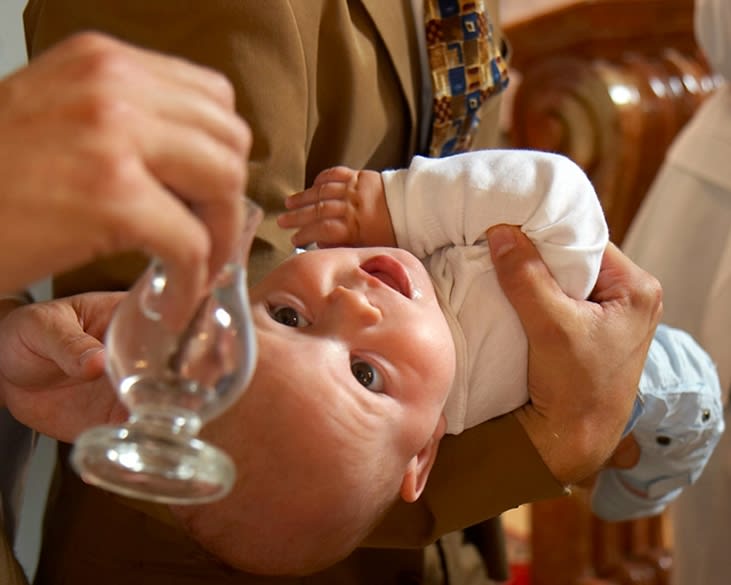Catholic baptism is a sacrament in which a person is initiated into the Catholic faith and receives the gifts of the Holy Spirit. In Baptism the child, freed from original sin, becomes an heir to the Kingdom of God, receiving the theological virtues of faith, hope, and charity and the gifts and fruits of the Holy Spirit. After a Catholic baptism, several things typically take place:
- First Communion: The child will receive their first communion, which is typically taken on the day of the baptism or during the first Sunday mass following the baptism. This marks the child's initiation into the Catholic faith and their new life in Christ. The Godparent is responsible for bringing the child up for communion and should take the child when available.
- Confirmation: The child will receive the sacrament of Confirmation, which typically takes place during the child's adolescence. Confirmation is a sacrament in which the child is sealed with the gifts of the Holy Spirit and is formally recognized as a full member of the Church.
- Parish registration: The child will be registered as a member of the parish and will be added to the parish's baptismal register.
- Baptismal certificate: The child will be given a baptismal certificate, which serves as a record of the child's baptism and can be used for various sacraments and other religious milestones in the future.
- Raising the child in the faith: The parents and godparents of the child will be given information on how to raise the child in the faith, and they will be encouraged to continue their child's spiritual formation by attending mass regularly, participating in religious education, and seeking out opportunities for sacraments and other religious milestones.
Additionally, it is common for Catholics to choose a cross to wear as a symbol of their faith. Many Catholics choose to wear a cross as a reminder of their baptism and their commitment to their faith. It can be worn as a necklace or displayed in a home as a reminder of their beliefs

